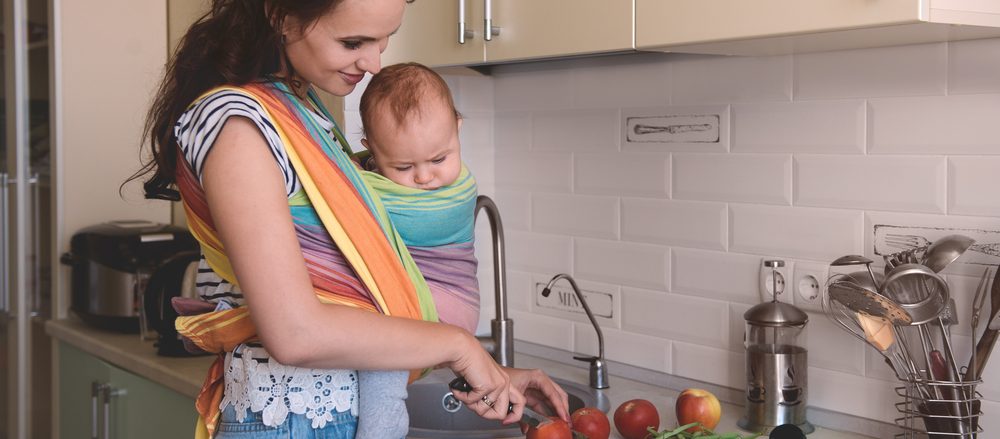We know that breast milk is the best food for your baby, but have you ever wondered about your own nutrition during breastfeeding? If you have, then you’re in the right place! We’ve asked Andrea Price, Everyone Health’s in-house midwife, all about the importance of having a balanced diet: “A balanced diet rich in vitamins and nutrients that our bodies need is important in every stage of life. When breastfeeding you don’t need to eat anything special, however producing breastmilk requires approximately an extra 200 calories a day, can increase thirst and in the early postpartum period the body needs the correct nutrients for healing.”
Do I need to follow a ‘special’ breastfeeding diet?
No. There is no strict meal plan or diet that you need to follow when you’re breastfeeding. Instead, focus on eating a nutritionally balanced diet to help you and your baby stay healthy, maintain your breast milk supply, and support the nutritional needs of your little one.
What does a ‘nutritionally balanced diet’ look like?
We’re sure you’ve heard the words ‘balanced diet’ thrown around a lot – but what does it actually mean? Well, a balanced diet includes a healthy mix of all food groups:
- Fruits and vegetables – These superfoods are packed with vitamins and minerals to support a healthy immune system. You should be aiming to eat 5 portions a day, and this can include a small glass of unsweetened fruit juice, and a variety of fresh, frozen, tinned or dried fruit and veg.
- Carbohydrates – Carbohydrates provide us with energy and are the fuel you need for everyday activity (like playing with your baby!) and internal bodily functions, such as nervous system and kidneys etc. Some good sources of carbohydrates include pasta, rice, potatoes, bread and oats.
- Protein – Lean meat, fish, eggs, tofu and nuts are all packed full of protein which is essential for the growth of you and your baby.
- Fibre – If you have experienced constipation after giving birth, then you may want to increase your fibre intake. Beans, lentils, wholemeal bread and fruits and veg like spinach, sweet potatoes and apples are all great sources of fibre which supports digestion.
- Dairy and dairy-free alternatives – Milk-based and alternative milk-based foods like milk, cheese and yoghurt are an important source of calcium, which is what gives us strong bones and teeth. Calcium is depleted when breastfeeding, so it’s important to aim for 4 servings a day to make up for this.
- Oils and fats – Don’t avoid these important nutrients! Healthy fats are vital for helping your body to absorb the vitamins we get from other food groups, and have also been shown to lower the risk of heart disease, improve blood cholesterol levels and help with blood sugar. Not to mention the glowing skin and long, luscious locks people experience after increasing their consumption of these nutrients. Oily fish like salmon and mackerel are a great source of these, however they are also found in a lot of plant-based foods such as walnuts, flax seeds, chia seeds and avocado (that counts as 1 of your 5 a day!). You shouldn’t have more than 2 portions (140g) of oily fish a week as these may contain pollutants.
You can view our Eatwell Guide here to help you know what and how much to eat to achieve a healthy, balanced diet to support your health and baby’s development.
Should I take any vitamins?
Vitamin D is a key vitamin that is essential for your and your baby’s health and development. Many people living in the UK suffer with a deficiency from this, as most people get their vitamin D fix from sun exposure. The best food sources of vitamin D are oily fish such as salmon and mackerel. It is also sometimes added to foods like breakfast cereals, plant milks and fat spreads e.g., olive spread too.
Is there any foods I should avoid?
It’s good news! Apart from limiting how much oily fish you’re eating, there aren’t any specific foods that are off-limits when breastfeeding your baby. You’re free to enjoy all of the paté, soft cheese and Parma ham you like!
Just like anything you consume, caffeine does get through to your breast milk. The NHS website recommends that breastfeeding parents have no more than 200mg of caffeine a day – this works out to 1 mug of coffee or tea or 1 can of cola and 220ml can of energy drink. For more information, please click here.
Many parents tend to avoid alcohol completely whilst they’re breastfeeding. For more information on drinking alcohol and breastfeeding, please click here.
Do I need more water when breastfeeding?
Yes. Breastfeeding can make you extremely thirsty, so it’s important to stay hydrated. Everybody should aim for 6 to 8 glasses or 2 litres of fluid a day – and you will find that you need more than this amount when breastfeeding. If you struggle to drink enough, set reminders on your phone or make a rule to sip on a glass of water, milk or diluting juice whenever you’re feeding your baby.
National Breastfeeding Week – What to eat for a healthy breastfeeding diet

